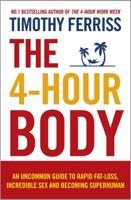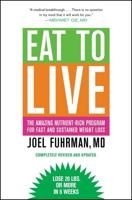Publisher's Synopsis
Achieving healthy weight loss isn't about a "diet" or "program" but a lifestyle with healthy eating patterns, regular physical activity, and stress management. Medications taken for other diseases may also make it tougher to lose weight. If you are concerned about your weight or have questions about your medications, talk with your health care practitioner.
When you're attempting to reduce weight, it's normal to want it to happen extremely quickly. But persons with modest and steady weight loss (approximately 1 to 2 pounds per week) are more likely to keep the weight off. Once you've achieved a healthy weight, rely on proper food and physical activity to help sustain health over the long term. Losing weight isn't simple, and it needs commitment. But if you're ready to get started, we've got a step-by-step guide to assist begin you on the path to weight loss and better health. Before starting on the guide, it's crucial to approach the adjustments with self-compassion and to assess your readiness and motivation. Creating a supportive atmosphere, both physically and with the people in your life, can help you reach your goals. Even minor weight loss can offer enormous benefitsEven a minor weight loss of 5% to 10% of your total body weight is likely to offer health benefits, such as improvements in blood pressure, blood cholesterol, and blood sugars. For example, if you weigh 200 pounds, a 5% weight loss is 10 pounds, reducing your weight down to 190 pounds. While this weight may still be in the "overweight" or "obesity" range, this moderate weight loss can lessen your risk for chronic diseases associated to obesity. So even though the overall aim looks huge, regard it as a journey rather than a final destination. You'll discover new food and physical activity habits that will help you live a healthy lifestyle. These routines can help you maintain your weight loss over time.










